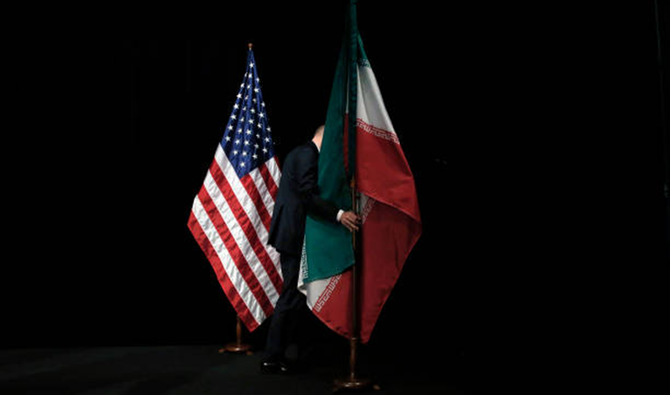A rocky road ahead to ‘JCPOA 2’

https://arab.news/gexyf
President Joe Biden and Secretary of State Antony Blinken have both made it clear that the US is willing to engage in negotiations to restore the Joint Comprehensive Plan of Action (JCPOA), the 2015 agreement to curb Iran’s nuclear program in return for an easing of sanctions.
Europe, too, wants to find a way forward with Iran, which is understandable given its geographic proximity to the Middle East. Who wants nuclear weapons to proliferate in one’s neighborhood? Iran is also rich in energy resources and commodities, with a youthful population of about 85 million that could become a lucrative market for European companies.
The JCPOA was one of the EU’s few foreign policy successes, so it was of little surprise that the bloc disagreed with the Trump administration’s withdrawal from the deal in 2018. The EU’s high representative, Federica Mogherini, engaged with Iranian Foreign Minister Mohammad Javad Zarif in an effort save the substance of the agreement. Europe came up with a non-dollar denominated payment mechanism that would have allowed Iran to purchase goods outside the sanctions’ regime. It did not work, because such is the pre-eminence of the dollar in global payment systems that companies faced the stark choice of doing business with either Iran or the US.
Since Trump began reimposing sanctions, Iran has incrementally expanded breaches of its obligations under the JCPOA — enriching more uranium to 20 percent purity and producing uranium metal, which may be used in nuclear warheads. Tehran’s latest ultimatum is that if the US does not return to the agreement by Feb. 23, Iran will cease to comply with the additional protocol to the JCPOA, which permits unannounced snap inspections by the International Atomic Energy Agency.
However, simply turning the clock back to 2015 is not going to happen. The Biden administration and many observers believe any “new” JCPOA needs to go beyond uranium enrichment to encompass Iran’s ballistic missile capability, the aggressive behaviour of its proxy militias in the region, and Tehran’s support for the Assad regime in Syria.
Washington would like to see Russia and China involved in negotiations, which makes sense; there probably cannot be a lasting agreement without those two geopolitical heavyweights. However, Biden also made it clear at the Munich security conference last week that he stood for democracy and human rights, and that his views on China and Russia on these issues were skeptical to say the least. So something will have to give.
It will also be important to include the major Gulf states and Israel in any future agreement. It is unclear what form such inclusion should take, consultative or otherwise, which may become a stumbling block. But these are the major US allies in the region and Washington can ill afford to ignore them, especially given the debates on NATO troop strength in Iraq and Afghanistan.
The road to any agreement is also fraught with issues for Iran, where a presidential election is months away. During the parliamentary election in 2016 and the presidential election in 2017, moderates argued that the JCPOA would bring economic gains. But US sanctions ensured that little benefit accrued to ordinary Iranians, so that argument will not work this time, which may help hard-line conservative candidates. In judging where new negotiations could lead, it will matter who holds the Iranian presidency after June 18.
No one doubts the value of an agreement that would moderate Iran’s behavior, and the US seems willing to re-engage, but the way to a comprehensive deal is far from easy and even farther from being assured. There is a rocky road ahead.
• Cornelia Meyer is a Ph.D.-level economist with 30 years of experience in investment banking and industry. She is chairperson and CEO of business consultancy Meyer Resources.
Twitter: @MeyerResources









































